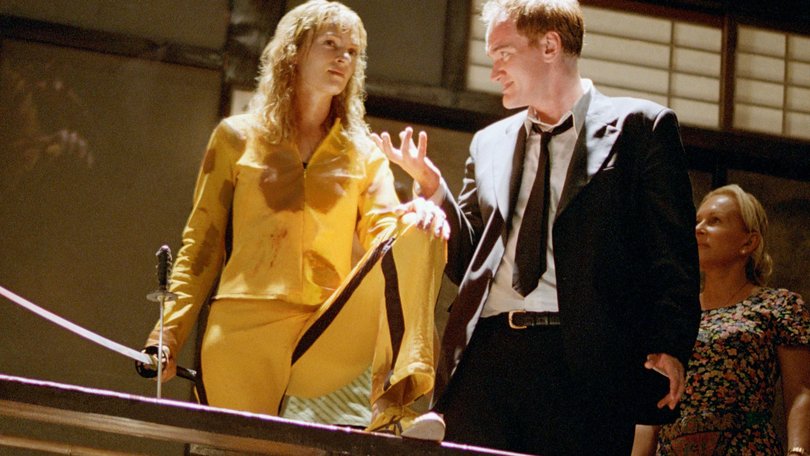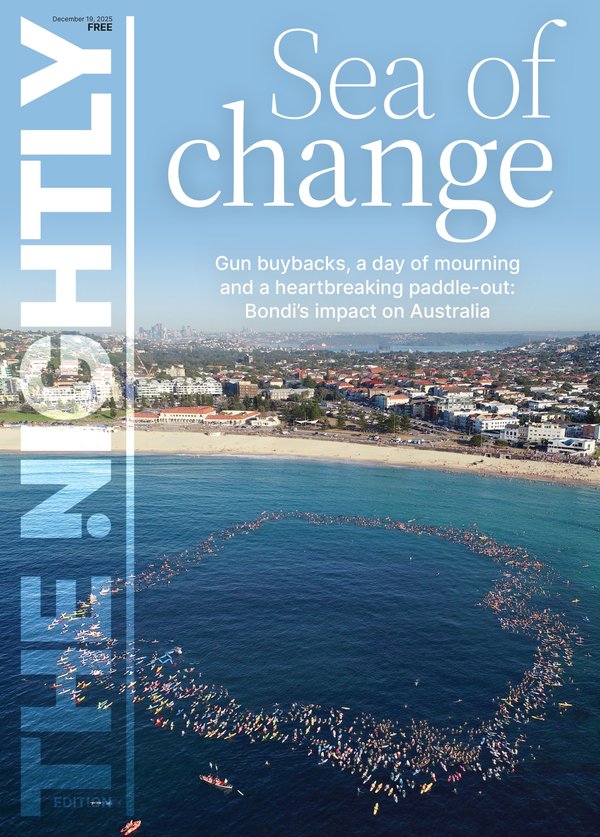THE WASHINGTON POST: ‘Kill Bill’ sneakers turn Japan soft power into hard profits

The unlikely must-have item for tourists in Japan is the footwear of choice of Kill Bill’s protagonist.
Onitsuka Tiger, the fashion brand reborn when Uma Thurman’s The Bride wore its sneakers in Quentin Tarantino’s 2003 movie, is enjoying record sales. (The look was inspired by Bruce Lee’s outfit in Game of Death, with Lee also sporting the same kicks.) Asics Corp discontinued the brand for decades until the early 2000s, but post-Covid visitors can’t get enough of the comfy, timeless trainers.
Revenue in Japan has doubled in a year, with tourists accounting for almost all the surge. Onitsuka is by far Asics’s highest-margin segment, with a new flagship store on the Champs-Élysées in Paris and plans for shops in the US. Shares are up eightfold in the past five years, helping its market capitalization to recently pass $20 billion.
Sign up to The Nightly's newsletters.
Get the first look at the digital newspaper, curated daily stories and breaking headlines delivered to your inbox.
By continuing you agree to our Terms and Privacy Policy.It’s also more evidence that visitors to Japan are a growth driver. Complaints about overtourism get the headlines; online grumbles surround the “shadow economy” of Asian travellers said to extract more than they spend. But the evidence is there for all to see in the 8.1 trillion yen ($55 billion) of foreign spending last year - and increasingly in profits at firms like Asics. It’s far from alone.
The focus of the most recent earnings season might have been the impact of US tariffs, but a more interesting narrative is a surge in authentically Japanese brands reaching tourists or expanding abroad.
The weak yen is, of course, a factor. But more important is the strategy of creating fans of the country, who connect with a part of the culture and want to spend on it at home. And from Muji to Mario and Hello Kitty to Uniqlo, these firms are having record quarters, helping propel the Nikkei 225 to a series of record highs.
Consider Kitty’s maker, Sanrio Co. While it still generates its largest chunk of revenue domestically, tourists now account for around 40 per cent of its product sales here (the data is trackable thanks to Japan’s sales-tax exemption scheme). Shares are up more than 10 times from the 2019 level.
Or Food & Life Cos, the owner of conveyor-belt sushi leader Sushiro. Its restaurants in Tokyo and other city centers are thronged with travelers, and it has been expanding abroad.
The company aims to have 320 stores overseas by fiscal 2026, from just 38 five years ago. The first Sushiro in mainland China opened last year, with reports of customers queueing for 10 hours for some chutoro. Ryohin Keikaku Co. now has more Muji locations outside Japan than at home, selling minimalist notebooks and no-brand cosmetics.
Without simplifying Japan into ikigai and other reductive nonsense, these firms do have a common link. It’s some combination of affordability, high quality and an aesthetic minimalism that taps into feelings consumers have long associated with “Japan-ness.” (The same can be said about foreign brands that try to ape this look, such as the Chinese retailer Miniso Group Holding Ltd).
Companies that can take this and tap into newfound customers at home or overseas have significant upside, as the country seeks to attract 60 million tourists spending an annual $100 billion by the end of the decade.
The exemplar of this transformation is Fast Retailing Co., the operator of Uniqlo. It was once the poster child for how a deflation-beset country was turning to cheap fast fashion.
“Basic Chic From Japan. But Will It Sell?” asked a New York Times headline in 2006, when Uniqlo opened its flagship outlet in the city; back in those days, 90 per cent of sales were in its home market. Since then, it has transformed itself into a minimalist yet iconic fashion brand, and overseas turnover overtook domestic in 2022.
Of course, not every successful company needs to be minimalist. At the other end of the spectrum is retailer Pan Pacific International Holdings Corp.
Its Don Quijote stores are an assault on the senses, but it is a brand that tourists associate with the country - and in turn can generate higher margins than most discount retailers. It’s expanding in Japan with even more shops to cater to visitors, with plans to more than double those sales to $2.7 billion by 2035.
That’s before we even get into more iconic names such as Nintendo Co. and the gaming and comic giants that benefit from the recent infatuation with Japan’s soft power.
If a traveller carries an Onitsuka Tiger bag, odds are the other hand holds one from Nintendo, Capcom Co or Sega Sammy Holdings Inc’s merchandise stores. More brands can tap into this, too: A recent collaboration between Sega’s Sonic the Hedgehog and VF Corp.’s Timberland shoes sold out in minutes.
Souvenirs of a trip can be quickly discarded. But these brands are positioned to better stand the test of time - and turn Japan’s soft power into hard profits.
- - -
This column reflects the personal views of the author and does not necessarily reflect the opinion of the editorial board or Bloomberg LP and its owners.
Gearoid Reidy is a Bloomberg Opinion columnist covering Japan and the Koreas. He previously led the breaking news team in North Asia, and was the Tokyo deputy bureau chief.
Bloomberg Opinion
